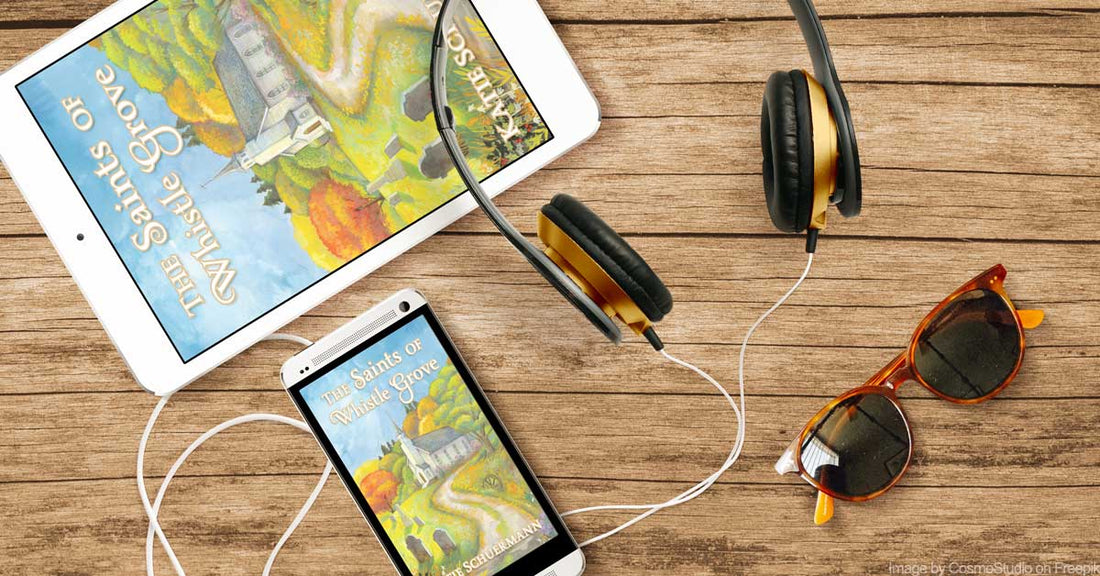Do you prefer to read on paper or on a screen? For many people, the answer is both, depending on what they’re reading.
Until now, Kloria has published only the printed word. Children benefit from having books they can hold in their hands, turn the pages, look at the illustrations, or bringing them to parents or siblings to read and sing.
Just a few months after Kloria entered the realm of adult fiction with Katie Schuermann’s The Saints of Whistle Grove, an e-book and audiobook edition are available. Digital versions of books can offer greater convenience than printed books, but printed books still hold enduring value, especially in our digital age.
For thousands of years, mankind has read tangible copies of books, whether ancient scrolls, medieval manuscripts, or the first copies of Gutenberg’s Bible. And for most of human history, books were copied by hand—it’s just in the last 500 years that printed books have been widespread.
E-books are a much newer innovation—the Kindle was first sold by Amazon in 2007. Just because something is historical doesn’t mean it can’t be improved, but we also shouldn’t adopt a new alternative simply because it exists.
Physical books offer a unique constancy in today's fast-paced world. Whereas digital content can be easily changed or quietly updated, physical books cannot be modified except by a new printing. And while e-book readers can adjust font size and style, the typesetting of a physical book is an art in itself.
According to the magazine Scientific American, reading a physical copy of a certain text increases memory of details and helps readers to find a passage again. Physical books also encourage readers to mark the pages, which can help in remembering and processing the text.
But perhaps the greatest reason to appreciate physical books is that God gave mankind both a body and a soul. The ancient philosophy of gnosticism saw the body as separate from and inferior to the soul. Similarly, our society’s use of technology threatens to separate the tangible from the real. Much of life can be lived through technology, from work to school to social interactions.
That being said, some readers still find advantages in digital alternatives. Unlike bulky physical books, e-books take up very little room, and can easily be accessed on a phone or another device. Particularly while traveling, this convenience is necessary to many people’s reading habits.
Audiobooks also hold a certain advantage—they don’t need actually to be read. Both children and adults can listen to the spoken word while busy with other activities that would not allow them to sit down and read. In the case of Kloria's audiobook of The Saints of Whistle Grove, author Katie Schuermann has narrated her own book, allowing listeners to invite the author into their homes and hear the story directly from her.
The printed book remains valuable, and offers many advantages that electronic books cannot. But, for some readers, electronic copies may be more practical in certain contexts. Technology, though it can be misused, is not inherently bad; it is just a tool. Kloria will always be committed to the printed word, but for those who need or prefer an e-book or audiobook edition of The Saints of Whistle Grove, both are available from Amazon.

